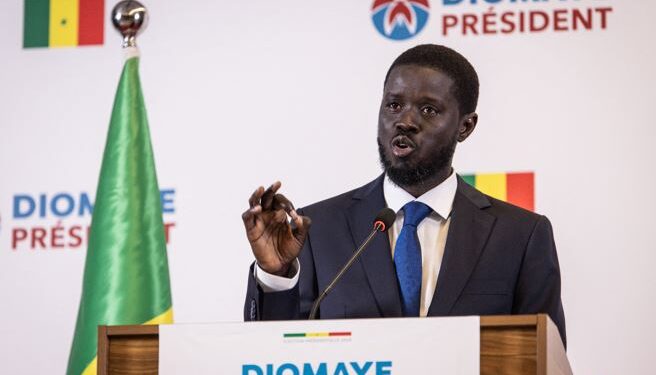In a groundbreaking political shift, Bassirou Diomaye Faye, a 44-year-old left-wing pan-Africanist, assumed office as Senegal’s youngest president on Tuesday, vowing to enact profound changes following years of unrest. Faye, previously untested in elected roles, clinched victory in the first round of elections with a platform advocating radical reform, mere days after his release from imprisonment. Amidst a ceremony attended by African dignitaries, he took the presidential oath in Diamniadio, pledging to serve the Senegalese people faithfully.
Upon his inauguration, Faye appointed Ousmane Sonko, a firebrand opposition leader, as prime minister, marking a significant departure from conventional political practices. Sonko, who faced off against state authorities in a protracted standoff, now assumes a pivotal role in Faye’s administration, signaling a commitment to inclusivity and change.
Faye, the fifth president since Senegal’s independence, acknowledges the nation’s desire for systemic transformation. Promising a peaceful and democratic Senegal, he emphasizes the importance of an independent judiciary and national reconciliation. Additionally, he pledges to prioritize issues such as reducing the cost of living, combating corruption, and reclaiming sovereignty over vital sectors like oil, gas, and fisheries.
Internationally, Faye’s ascent to power garners praise from global powers and regional blocs alike. His agenda includes fostering solidarity among African nations to address security challenges and revitalizing regional cooperation frameworks. Notably, representatives from neighboring countries, including military leaders, extend their support, underscoring the significance of this new era in African governance.
Despite international acclaim and ambitious policy objectives, Faye faces daunting domestic challenges, chief among them being unemployment, particularly among the youth. With a large percentage of the population under 35 and a high unemployment rate, addressing economic disparities and creating sustainable employment opportunities emerges as a critical priority for his administration.
In the face of these challenges, Faye’s leadership represents a beacon of hope for Senegal, symbolizing a departure from the status quo and signaling a new chapter in the nation’s history. As he assumes office, all eyes are on him and his government to deliver on their promises of progress and prosperity for all Senegalese citizens.
























